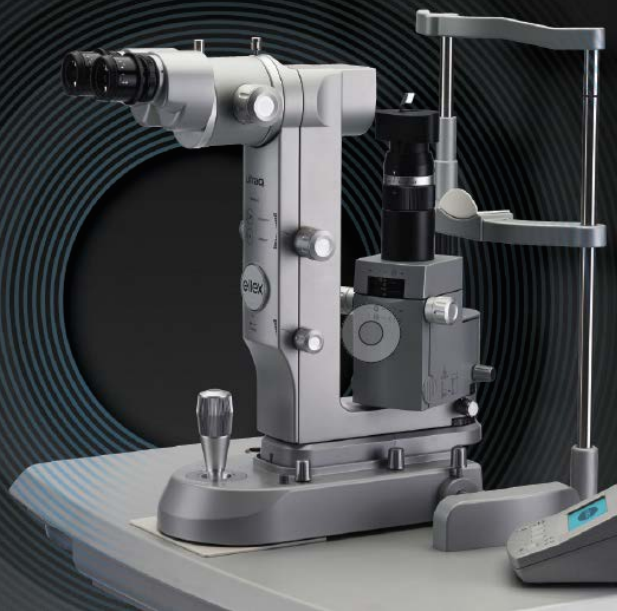
Understanding Floaters: A Visual Disturbance
What Are Floaters and Why Do They Occur?
Imagine tiny specks, like dust motes, drifting across your vision. That’s essentially what floaters are. They appear as black or gray spots, sometimes like threads or cobwebs, and they move when your eyes do. These visual quirks usually stem from age-related changes in the vitreous, the gel that fills your eye. As we get older, this gel can liquefy and shrink, causing strands of collagen to clump together. These clumps then cast shadows on the retina, which you perceive as floaters. While often harmless, a sudden surge in their numbers or their initial appearance should prompt a visit to an eye doctor.
The process of the vitreous pulling away from the retina, called posterior vitreous detachment (PVD), is a common source of floaters. Sometimes, this separation can tug on the retina, potentially leading to tears or detachment, which are serious issues. Knowing the difference between normal floaters and those signaling a problem is key to preserving your eye health.
Beyond natural aging, other factors can contribute to these visual phenomena. Eye injuries, inflammation inside the eye (uveitis), and diabetic retinopathy can all play a role. Certain medications and surgical procedures might also increase the likelihood of floaters. Understanding your personal risk factors and discussing them with an eye specialist is important.
While most floaters are just a bit annoying, the emotional effect of constant visual disturbances shouldn’t be ignored. For some, the persistent presence of floaters can lead to worry and a decline in their daily enjoyment. Knowing the underlying causes and possible management approaches is essential for addressing both the physical and emotional sides of this condition.
Medical Interventions: When to Seek Professional Help
Recognizing Urgent Symptoms and Treatment Options
Though many floaters are harmless, certain symptoms demand immediate medical attention. If you see a sudden increase in floaters, flashes of light, or a loss of side vision, go to an eye doctor right away. These signs could indicate a retinal tear or detachment, requiring quick action to prevent permanent vision loss. In these situations, time is very important.
For persistent and bothersome floaters that significantly impact your daily life, medical interventions might be considered. One option is a vitrectomy, a surgical procedure that removes the vitreous gel and replaces it with a saline solution. While effective, vitrectomy carries risks, including infection, bleeding, and retinal detachment. It’s usually reserved for serious cases where the benefits outweigh the potential complications.
Another emerging treatment is laser vitreolysis, a non-invasive procedure that uses lasers to break up large floaters. However, this procedure isn’t suitable for all types of floaters and requires careful patient selection. The availability and effectiveness of laser vitreolysis can vary depending on the specific characteristics of the floaters and the expertise of the eye doctor.
It’s important to have a detailed discussion with an eye specialist to determine the most appropriate course of action. They can evaluate your individual situation, assess the severity of your floaters, and provide personalized recommendations. Regular eye check-ups are vital for early detection and management of any potential complications.
Lifestyle Adjustments: Managing Floaters Naturally
Diet, Hydration, and Eye Exercises
While there’s no guaranteed way to eliminate floaters naturally, adopting a healthy lifestyle can support overall eye health. Staying well-hydrated is essential for maintaining the consistency of the vitreous. A balanced diet rich in antioxidants, vitamins, and minerals can also contribute to eye health. Foods like leafy greens, berries, and fish are known to promote healthy vision.
Some people find relief through specific eye exercises. These exercises, which involve moving the eyes in various directions, can help to shift the floaters out of the center of your vision. While they may not eliminate floaters entirely, they can provide temporary relief and improve eye muscle flexibility. However, it is very important to consult an eye professional before starting any eye exercise regime.
Reducing stress and getting adequate sleep can also indirectly benefit eye health. Chronic stress can worsen various health conditions, including eye-related issues. Prioritizing rest and relaxation can contribute to overall well-being and potentially lessen the perception of floaters. Getting enough sleep helps your body repair and maintain healthy systems, including your eyes.
Protecting your eyes from excessive sunlight and UV radiation is crucial. Wearing sunglasses with UV protection can prevent further damage to the eyes and potentially slow down the progression of age-related changes. Avoiding staring directly into very bright lights is also important.
The Psychological Impact: Coping with Visual Disturbances
Addressing Anxiety and Improving Quality of Life
The constant presence of floaters can take a toll on mental well-being. For some, the visual disturbances can lead to worry, frustration, and a diminished enjoyment of life. It’s essential to acknowledge the psychological impact of floaters and seek support when needed.
Cognitive behavioral therapy (CBT) can be a valuable tool for managing anxiety related to floaters. CBT helps individuals identify and challenge negative thought patterns and develop coping strategies. Learning to refocus attention and minimize the perception of floaters can improve overall well-being.
Support groups and online forums can provide a sense of community and shared experience. Connecting with others who understand the challenges of living with floaters can offer emotional support and practical advice. Sharing experiences and coping mechanisms can be incredibly helpful.
Mindfulness and relaxation techniques, such as meditation and deep breathing exercises, can also help manage anxiety and reduce the perception of floaters. Practicing mindfulness can help individuals become more aware of their thoughts and feelings without judgment, fostering a sense of calm and acceptance.
Future Research and Developments: Hope on the Horizon
Emerging Technologies and Potential Breakthroughs
Ongoing research is exploring new and innovative approaches to treating floaters. Scientists are investigating advanced laser techniques, drug therapies, and even gene therapies to address the underlying causes of vitreous degeneration. These developments hold promise for more effective and less invasive treatment options in the future.
Artificial intelligence (AI) and machine learning are playing an increasingly important role in ophthalmology. AI algorithms can analyze retinal images to detect early signs of vitreous changes and predict the progression of floaters. This technology has the potential to improve early diagnosis and personalized treatment plans.
Nanotechnology is another area of research with potential applications in treating floaters. Nanoparticles could be used to deliver targeted therapies to the vitreous, potentially slowing down or reversing the degenerative process. This field is still in its early stages, but it offers exciting possibilities for future treatments.
Clinical trials are essential for evaluating the safety and efficacy of new treatments. Participating in clinical trials can provide access to cutting-edge therapies and contribute to advancing medical knowledge. If you’re interested in participating in research studies, consult with your ophthalmologist about available opportunities.
FAQ: Addressing Common Concerns About Floaters
Frequently Asked Questions
Q: Can floaters disappear on their own?
A: Yes, in some cases, floaters can become less noticeable over time as they settle at the bottom of the eye or as the brain adjusts to them. However, they rarely disappear completely.
Q: Are eye drops effective in treating floaters?
A: Unfortunately, there are no eye drops specifically designed to eliminate floaters. Eye drops may be used to address other eye conditions, but they do not affect the vitreous gel.
Q: Can diet or supplements get rid of floaters?
A: While a healthy diet and certain supplements can support overall eye health, they cannot eliminate existing floaters. They can help maintain eye health, but not cure it.

Floaters Specialist Greenwich, Ct Omar Shakir, Md, Mba

288 Eye Floaters Diet Soda, Frankincense, Eyes

Floaters (2013)

Laser Floater Treatment Moran Eye Associates
